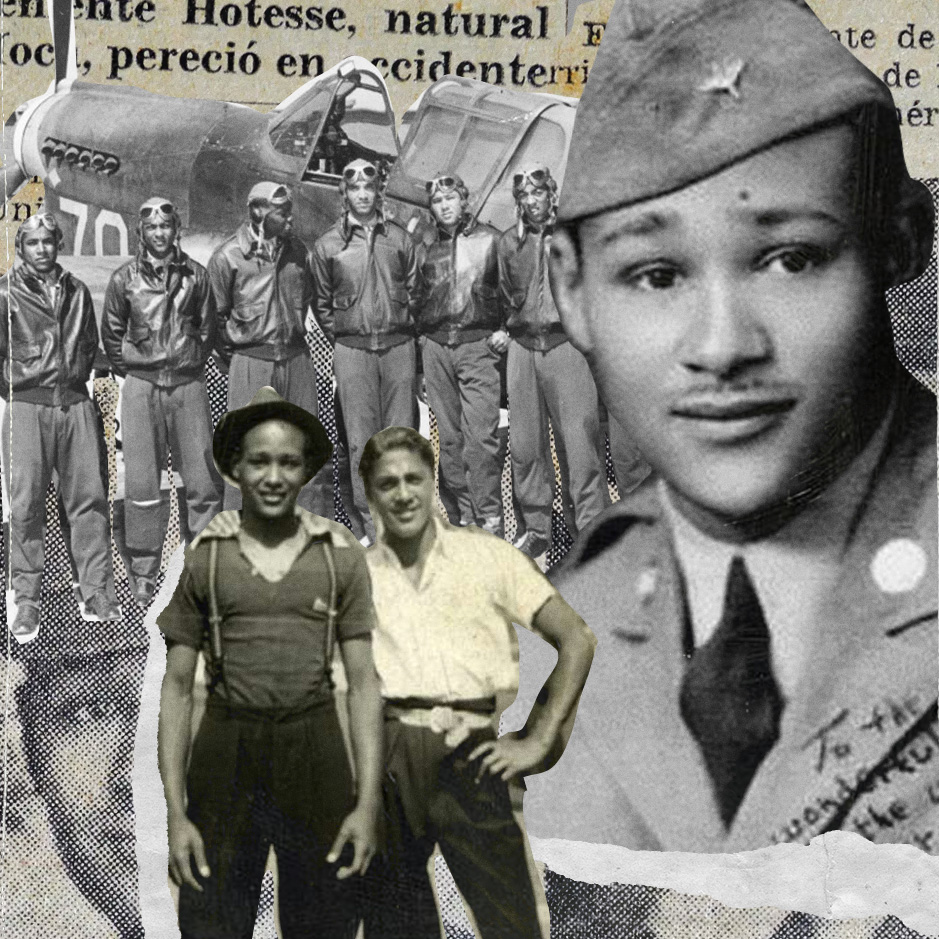Two years ago when Edward De Jesus, a research associate at the Dominican Studies Institute at CUNY, began researching a list of more than 300 Dominican-born soldiers that served in the United States armed forces, he hoped to find one that belonged to the Tuskegee Airmen, the famed group of African-American military pilots who served in WWII. De Jesus spent years poring over hundreds of military records, and at first it seemed like he’d hit a dead end. So when he discovered that a Dominican-born man named Esteban Hotesse did, in fact, belong to the lauded pilots, it was an exciting moment for history.
The first time De Jesus saw Hotesse’s name in the records, it was incorrectly spelled as Hotess. De Jesus looked up the name and found absolutely nothing. “I failed,” he said to Remezcla. “I didn’t see any results. I tried searching online, on Facebook, and I didn’t find anything.”
That might have been it if De Jesus hadn’t come across a similar last name – this time with the e included. So he modified his search and this year, he was finally was able to peer into the life of Esteban Hotesse, a Latino member of the Tuskegee Airmen. The small change allowed him to find Hotesse’s naturalization record, a Census form, and a marriage certificate, according to National Journal.

De Jesus was blown away that Hotesse was a member of the Tuskegee Airmen, but he was also surprised to learn that he and his crew were arrested for acts of disobedience. In 1945, black members of the 477th Bombardment Group tried to merge with an all-white officers’ club in a series of events known as the Freeman Field Mutiny. On April 5, the Airmen entered the officers’ club to protest the segregation, and more than half of them were arrested.
They were later asked to sign a statement that would have them agree to segregated clubs on the base, but Hotesse and 100 others refused to do. They were arrested and eventually released on April 23 on Army Chief of Staff General George C. Marshall’s orders.
“This act of disobedience later served as a model in the Civil Rights movements in the 50s in the boycotts that Martin Luther King and Rosa Parks participated in,” De Jesus said.
As of last week, Hotesse’s life – as well as the lives of other Dominicans who served in the armed forces – has been featured at a CUNY Dominican Studies Institute exhibit at the City College of New York titled “Fighting for Democracy: Dominican Veterans from World War II.” A few members of Hotesse’s family were present on opening night. Hotesse’s daughter lives in New York City, but he also has family who live in North Carolina. The exhibit served as a sort of family reunion, because as it turns out, some people hadn’t seen each other for many years.
But there was all-around excitement, and his granddaughter, Iris Rivera, donated photos and articles about Hotesse. “His niece, she was waiting for this moment to happen,” De Jesus said. “His daughter was also happy that he’s finally being recognized. Not a lot of them know a lot about him because they didn’t get to meet him.”
Hotesse joined the armed forces in 1942, and he applied for U.S. citizenship after almost a year of serving. He died at age 26 in 1945 in an accident, and a Spanish-language obituary in the Dominican Republic simply said that he was an aviator.
![]()
“Fighting for Democracy: Dominican Veterans from World War II” will be on display until March 31.







